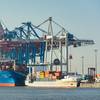European governments are torn over how to respond to China's defeat in a legal battle over the South China Sea, fearful of alienating their second-largest trading partner and hampered by a maritime dispute among their own members.
China angrily vowed to ignore the ruling by a court in The Hague dismissing its claim to much of the South China Sea. Its envoy to Washington said the verdict would "intensify conflict and even confrontation", though he also said Beijing remained committed to negotiations in disputes over the vital trade route.
Despite U.S. pressure on the European Union to take a stand on the issue, the bloc has so far been unable to agree a common statement, leaving diplomats to argue over the wording acceptable to all 28 member states.
The EU says it takes no position in the dispute between China and the Philippines, whose accusation that Beijing has violated its economic and sovereign rights was upheld in Tuesday's ruling by a five-judge tribunal under the 1982 U.N. Convention on the Law of the Sea (UNLCLOS).
But the EU remains concerned by China's militarisation of islands and reefs in the South China Sea, through which $5 trillion in global trade passes every year. It says it wants to see international law upheld.
A maritime dispute between EU members Slovenia and Croatia has hampered the bloc's response. Croatia pulled out of an arbitration process in 2015 at the same court that ruled on the South China Sea case, the Permanent Court of Arbitration (PCA).
Croatia wants no mention of UNCLOS in the final statement, leaving other governments frustrated just as senior EU officials head to a summit of Asian and European leaders, known as ASEM, in Mongolia on Friday, wanting a common position.
"We should be able to say that the finding of an international tribunal should be respected," said one diplomat who spoke on condition of anonymity because discussions were still underway. "This is not about apportioning blame."
Lucrative Contracts
Adding to the difficulties, eastern European countries including Hungary have been heavily lobbied by China in recent months. Beijing has offered lucrative contracts and investment in return for supporting the Chinese position on issues ranging from the South China Sea to Beijing's bid to be treated more favourably in trade disputes with Brussels, diplomats say.
Britain and France have been most vocal in calling on China not to escalate tensions in the area, diplomats say. However, British diplomats in Brussels have taken a lower profile since Britons voted last month to leave the European Union, they say.
Such divisions leave the EU looking timid to speak up for international maritime order and could undermine its standing, some analysts say.
Even though a statement may eventually come, the wording has been significantly watered down in meetings over the past few days, and top EU officials largely side-stepped the issue at an EU-China summit in Beijing this week.
At stake for the EU are China's long-awaited investment in the bloc's new infrastructure fund, negotiations to curtail Beijing's production in steel that European industry says is destroying local jobs and efforts to win European companies greater freedom to invest in China.
While Donald Tusk, head of the European Council which represents national governments, did mention the issue in public remarks in Beijing, EU foreign policy chief Federica Mogherini was careful to say the bloc did not take a stance on sovereignty in South China Sea, although she also urged all countries to respect UNCLOS rulings.
European Commission President Jean-Claude Juncker kept the focus of his public remarks firmly on deepening investment ties and seeking to resolve the issue of steel overproduction.
(Reporting by Robin Emmott)













